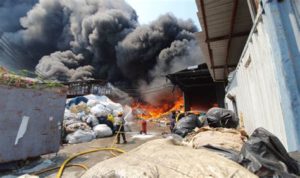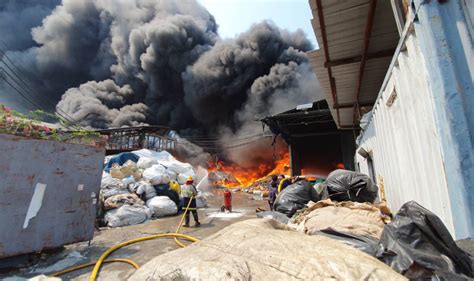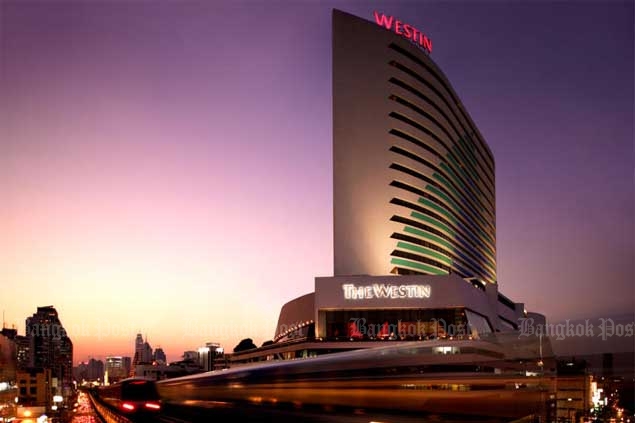
Recent factory explosion in Thailand – When Urban Sprawl Meets Industry – Risk and Liability
By Nuanporn Wechsuwanarux, Supavadee Sirilerkwipas, Tachatorn Vedchapun and Kanchana Suchato
Introduction
A recent explosion at a factory producing plastic foam and pellets in Samut Prakarn on 5 July 2021 located on the outskirts of Bangkok caused significant damage to surrounding communities. This incident has started a debate that is pinning industrial factory operators against residential developers as the borders of Bangkok continue to expand. Zoning laws are tools to control and manage the utilization of land and structures built in designated areas. The goal of zoning is generally to ensure that land will be developed in accordance with the country’s policies, to protect the welfare of people in the community, the economic landscape and the environment. In Thailand, zoning laws have a long history of continuous development with changes to regulations and rezoning occurring frequently. Rezoning and changes to zoning regulations can be problematic for factory operators in zones that are affected by rezoning or changes to zoning regulations. As such, it is vital for factory operators, or those interested in starting a business that requires factory operations to understand Thai zoning regulations.
Thai Zoning Laws
The main zoning law in Thailand is the Town Planning Act, B.E. 2562 (2019) (the “Town Planning Act”). Under the Town Planning Act, land possessors under a general exception may continue to operate restricted activities, if those activities were conducted prior to a change in the zoning restrictions. To clarify, when the zoning regulation is enacted to restrict some industrial purposes in a specific area, existing factory operators whose factories are located in the restricted area may continue their usual operations.
Grandfather provisions
In general, factory operators can rely on grandfather provisions in the Town Planning Act allowing continued operations in the wake of zoning changes. However, and as recently seen in the aftermath of the plastics factory explosion, the Town Planning Committee has the authority to order a factory operator to change operations or cease use of land. Such orders can be issued if the Town Planning Committee determine that the existing purpose of a factory is conflicting with the zoning policy (e.g., hygienic condition, public safety, social welfare, or the public interest). Compensation may be granted to the land possessor in cases where the committee finds that the change or cessation of operations will result in damages or reduced rights of the relevant land possessor.
Factory modification and expansion
The modification and expansion of an existing factory would be subject to the zoning regulation applicable to the area in which the factory is located. Factory operators in an area that has been re-zoned must carefully observe the relevant zoning laws when considering any modification or changes to their factory operations. For example, the zoning regulation in the Samut Prakan Province, where the chemical factory explosion occurred, is the Ministerial Regulation prescribing the comprehensive zoning for Samut Prakan, B.E. 2556 (2013) as amended. This Ministerial Regulations prescribes the permitted size of any expansion and conditions for expansion. Some minor modifications to a factory may be carried out if the changes are not considered as a “modification” defined under Thai building control laws. For example, if the modification of a building (except related to its structure) does not increase the overall weight of the building by more than 10%, that modification would be permissible.
Other Thai laws related to factory operations
In addition to zoning laws under the Town Planning act, there are several industrial laws which also need to be considered. Two important laws are the Factory Act, B.E. 2535 (1992) (as amended) and the Hazardous Substances Act, B.E. 2535 (1992) (as amended). These authorize relevant officers to order a factory operator and/or the persons related to operations that involve hazardous substances to rectify operations so that they follow proper measures if it has been determined that there might be any danger to the factory’s surroundings arising from the factory or hazardous substances. Failure to comply with such orders can ultimately lead to criminal penalties and/or, cessation of factory operations.
Liabilities of factory operators in the case of an incident
Duty of care and negligence
Factory operators can be exposed to liability for any unlawful injury (i.e., personal injury, property damage, or any other rights) caused by an incident or accident from its operation whether willfully or negligently. Factory operators have the duty of care. If they neglect to perform such duty, resulting in the harm of others, the incident or accident will usually amount to negligence. In these cases, affected or injured persons are entitled to file a civil claim against the factory operators to pay compensation for their wrongful acts.
Environmental liability (‘Polluter Pays’)
In terms of the environmental repercussions, factory operators are also subject to the Enhancement and Conservation of the National Environmental Quality Act, B.E. 2535 (1992) (as amended) (the “Environmental Act”) as an owner or possessor of a source of pollution. In the event that there is any leakage or dispersion of pollutants caused by or originated from a factory, which causes death, bodily harm, injury, or ill health of a person, or has caused damage in any manner to the property of a private person or of the state, factory operators will be liable for damages. As opposed to a general wrongful act claim, the civil liability under the Environmental Act is strict liability meaning that the owner or possessor of the offending factory will be liable regardless of whether the damage is a result of a willful or negligent act. The burden of proof is shifted to the defendant for environmental damage claims arising out of factory operations.
In addition to the “Polluter Pays Principle” embodied in the Environmental Act, polluters (in this case the factory operators) can be exposed to liability for all expenses incurred by the government for clean-up operations arising from an incident or accident. In severe cases where an unlawful or negligent act by factory operators causes damages to natural resources owned by the state or belonging to the public domain, the state can claim compensation for the total value of the natural resources destroyed, lost, or damaged.
Currently, there is no legal requirement for factory operators to carry liability insurance provided that the factory does not fall under the scope of controlled building laws as a high rise or edifice. There is no mandatory minimum liability coverage specified under controlled building laws.
Conclusion and key takeaways
Zoning regulations continue to develop in accordance with situations. As a result, zoning changes occur regularly. As urban centers continue to expand their borders, residential and commercial development is occurring in locations that have been industrial and manufacturing centers. Factory operators are encouraged to stay up to date on relevant zoning regulations and any future changes to such regulations, even if their operations existed prior to any zoning changes. This is especially true for operators that plan to expand their factory operations. If the nature of the business can potentially cause pollution or environmental damage, factory operators should remain vigilant in maintaining proper protection measures to prevent contamination to surrounding residential developments, and therefore prevent third-party claims for damages. In the event of an incident, they may also have to reimburse the government for expensive clean-up operations. General liability insurance and/or policy extensions to cover environmental liability is recommended.
Source: https://www.lexology.com/library/detail.aspx?g=8d3bf36e-ede7-4835-a399-7de5843912a8

